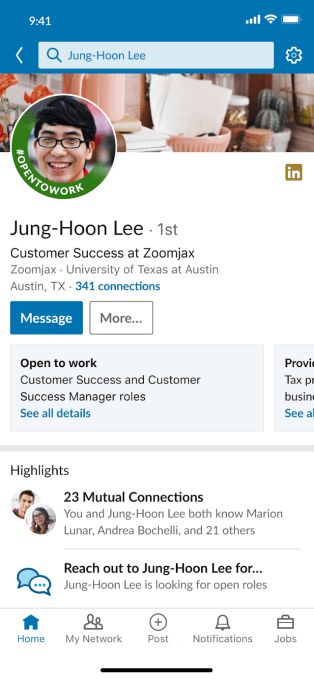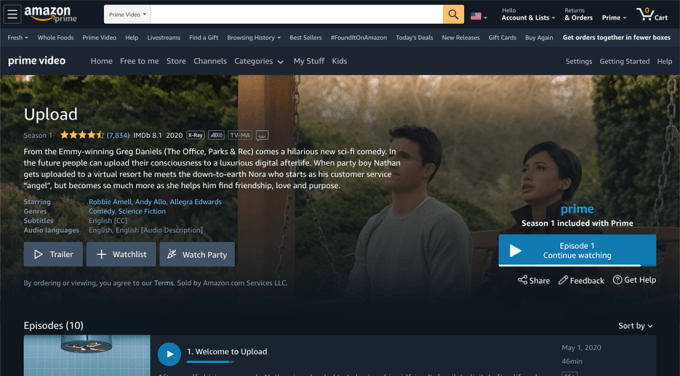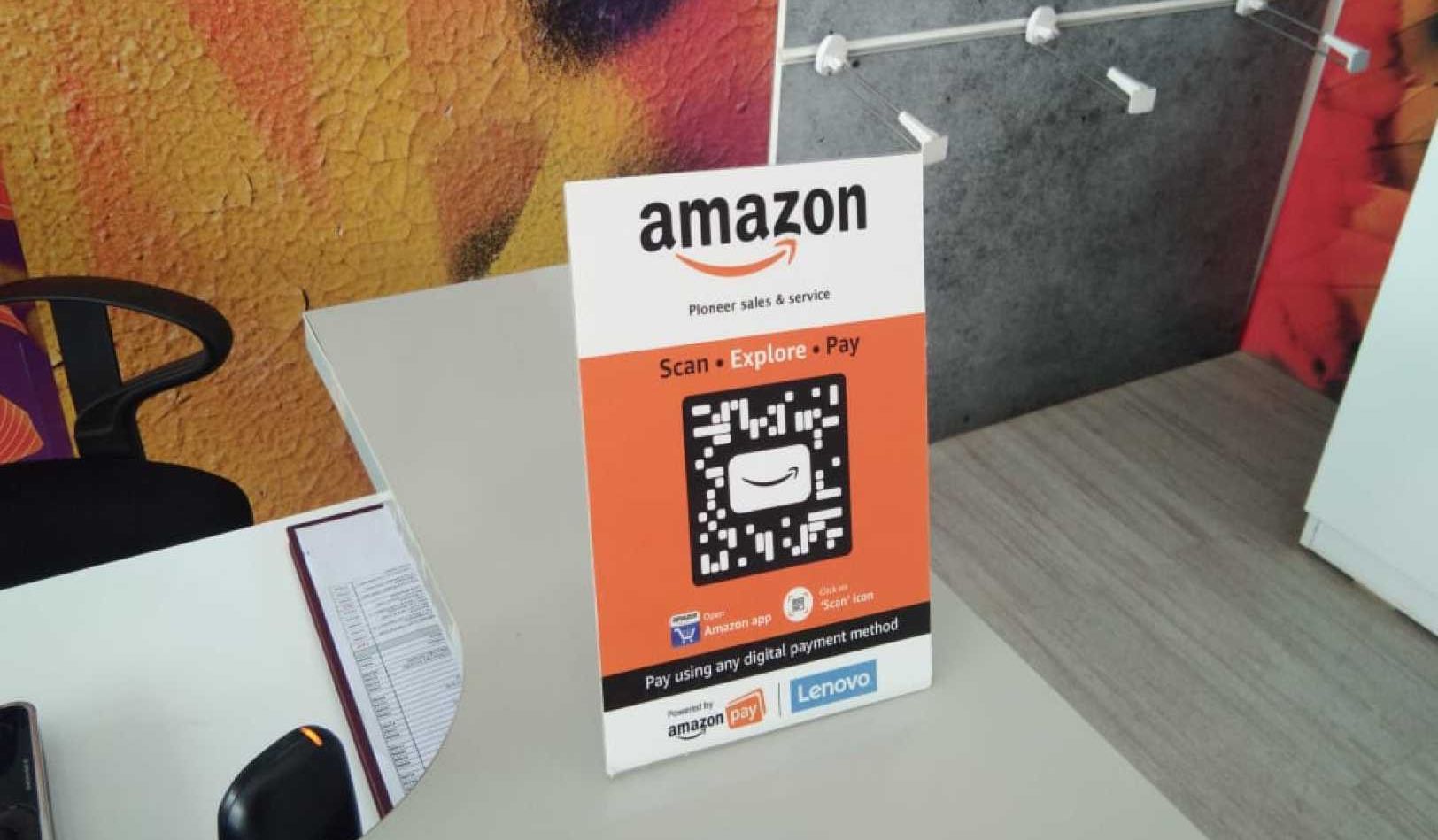The Station is a weekly newsletter dedicated to all things transportation. Sign up here — just click The Station — to receive it every Saturday in your inbox.
Hi friends and first-time readers. Welcome back to The Station, a newsletter dedicated to all the present and future ways people and packages move from Point A to Point B. I’m your host Kirsten Korosec, senior transportation reporter at TechCrunch.
Remember please reach out and email me at kirsten.korosec@techcrunch.com to share thoughts, criticisms, offer up opinions or tips. You can also send a direct message to me at Twitter — @kirstenkorosec.
Typically this space is where I philosophize about a specific event and emerging transportation trend. This week, let’s all take a pause to remember Jessi Combs, who was officially and posthumously declared to hold the fastest land speed record by a woman.
The Guinness Book of World Records certified this week the 522.783 mph land speed record that Combs achieved August 27, 2019 in the Alvord Desert in Oregon. Combs died after her vehicle crashed during that run. It’s the first time a new record has been set in this category in more than 40 years. Kitty O’Neil held the record with her 512.7 mph run set back in 1976.
Here’s to you Jessi, the fastest woman on earth.
Did anyone have trouble keeping up with all the deals, virtual automotive reveals and policy decisions this week? Yeah. Me too. Let’s get to it. Vamos.
Micromobbin’

A couple of cities are emerging as new battlegrounds for the shared e-scooter market. New York City is a biggie.
This week, the New York City Council approved a bill that will require the New York Department of Transportation to create a pilot program for the operation of shared electric scooters in the city. The DOT now has until October 15, 2020 to issue a request for proposals to participate in a shared e-scooter pilot program.
The pilot program must launch by March 1, 2021. The NY council will continue to work with DOT on determining where to set up the pilot (this is the important part). If the pilot program limits the service area it could prove a failure, several e-scooter companies and advocates told me. We know it won’t include Manhattan. That leaves four other boroughs.
Just about every e-scooter company — and a number of other less known players — are planning to apply for the permit. The next nine months promises a lot of lobbying activity. These firms are already busy, according to our sources. Stay tuned!
The NY city council also approved two laws about the use of privately owned electric bikes and scooters.
Meanwhile, Apple has finally added a new biking feature to Maps. The newest version of iOS is bringing a host of new features to Maps, including a dedicated cycling option that will optimize paths for bicyclists and even let users know if the route includes challenging hills. Apple Maps has included public transit and walking in previous iterations. But the biking option has been the most requested, according to Apple senior director Stacey Lysik.
Deal of the week

Amazoooooxxxxx. Zamazon? It’s a thing now. In case you missed it, Amazon acquired Zoox.
There have been rumors, speculation and reports about the fate of self-driving vehicle startup for months now. The WSJ had the first report in May that Amazon was in talks to acquire the self-driving company.
The official announcement, which was issued Friday morning, didn’t reveal much about the terms of the deal except that Zoox CEO Aicha Evans and co-founder and CTO Jesse Levinson will continue to lead Zoox as a standalone business.
As you might expect, there was nary a financial figure in sight. The Financial Times put the deal at $1.2 billion and The Information pegged it at “more than $1 billion.” Either way, the acquisition price was well below the $3.2 billion valuation Zoox had achieved two years before.
It wasn’t a secret that Zoox was struggling to raise a large enough round. As I’ve stated numerous times before, Zoox has the kind of ambitions that require a mountain of capital. And by mountain, I mean far north of $1 billion. The company isn’t just building the full self-driving stack — essentially the suite of hardware and software that replaces a human driver. It took on the design and development of a new bidirectional electric vehicle with no steering wheel and it plans to operate a ride-hailing service as well.
The upshot: Zoox didn’t have a lot of options. Many automakers, Tier 1 suppliers and tech companies had already formed their various alliances and partnerships, leaving Zoox on its own. Amazon certainly has the resources to help it hit its lofty goals. That is, IF Amazon doesn’t change those goals for Zoox. For now, Amazon is publicly sticking to Zoox’ mission to build and operate a fleet of robotaxis.
And we can expect more Amazon flexing in the transportation industry. The e-commerce announced this week a $2 billion Climate Pledge Fund to invest in sustainable technologies and services that will help the company reach its commitment to be net-zero carbon in its operations by 2040. Some of that coin will go towards automation and transportation.

Other deals that got our attention ….
Self-driving truck startup TuSimple has hired investment bank Morgan Stanley to help it raise $250 million, multiple sources told me. Morgan Stanley recently sent potential investors an informational packet, which I also viewed, that provides a snapshot of the company and an overview of its business model, as well as a pitch on why the company is poised to succeed. TuSimple has raised about $298 million with a valuation of more than $1 billion. Its backers include Sina, operator of China’s biggest microblogging site Weibo, Hong Kong-based investment firm Composite Capital, Nvidia, UPS, CDH Investments, Lavender Capital and Tier 1 supplier Mando Corporation.
ADAM CogTech, an Israeli automotive software startup, raised $2 million from Mobilion Ventures, the company said. Mobilion is an early-stage fund that invests in smart mobility, focusing on Israeli and global after-market innovation.
Amazon’s $575 million investment into UK food delivery startup Deliveroo has been cleared by the country’s competition regulator. The investment, which was announced more than a year ago, gave Amazon a 16% stake in Deliveroo. Now that CMA has provisionally cleared the deal, it is open for public comments until July 10. A final decision is expected August 6.
Cazoo, the British online used car marketplace, raised £25 million at a valuation in excess of $1 billion. Draper Esprit joined existing investors in the round, a group that includes DMG Ventures and General Catalyst. Cazoo has raised more than £200 million to date.
DriveU.auto, an Israeli startup that spun out of video transmission technology company LiveU, came out of stealth with $4 million in new funding. The startup has developed a connectivity platform for teleoperations. The funding round was led by RAD group co-founder Zohar Zisapel and included participation from Two Lanterns Venture Partners, Yigal Jacoby, Kaedan Capital and other private investors. Francisco Partners is an existing shareholder.
Lucid Motors gave up majority ownership to Saudi Arabia’s sovereign wealth fund in exchange for the $1.3 billion investment it closed last year, according to information disclosed in a new lawsuit, the Verge reported. Wired Middle East previously reported the PIF had taken a 67% stake. However, this is the first time an acknowledgment from the company has been made public.
Shift Technologies, an online used car marketplace, is in talks to merge with blank-check company Insurance Acquisition Corp., Bloomberg reported. Shift is aiming to be valued at more than $500 million in the deal.
Third Wave Automation, a startup developing autonomous forklift technology, emerged from stealth with $15 million in equity financing, VentureBeat reported.
Volkswagen is in talks to buy Europcar Mobility Group, the French car rental company that has a market capitalization of 390 million euros ($441 million) and net debt as of more than 1 billion euros, Reuters reported.
Truckin’

Trucks have popped up a lot this week, so I figured, heck let’s dig in a bit. The big trendy discussion is about how robotaxis are OUT and autonomous Class 8 trucks are IN. This move towards trucking has actually been happening for awhile now.
The niche subcategory in the autonomous vehicle industry was rather empty in 2015 when TuSimple was founded. Then self-driving truck startup Otto came along. Uber’s 2016 acquisition of Otto certainly brought some attention to the sector. But a number of other startups had also thrown their respective hats into the trucking ring, including Embark and the now defunct Starsky Robotics. Today, this sub-industry includes Ike, Kodiak Robotics and Waymo.
This week, Amazon-backed Aurora received some press for its “shift” to trucking based off of an interview with co-founder Sterling Anderson during The Information’s Autonomous Vehicle Summit.
Let’s be clear, the company has been publicly talking about trucks since at least October 2019. The notable bit is that Anderson shared more about its work with trucks and was clearly bullish on the potential in the marketplace. Together, his comments suggest that the company is prioritizing the development of autonomous trucks over cars.
But the company designed a full self-driving stack meant to have a variety of applications, not just passenger cars. In a tweet after the interview, Anderson summarized its whole approach.
We’re compelled by a product path that goes from middle mile to last mile to mobility services.
If you can swing this technically, it allows for an elegant transition from the largest market (today) with the best unit economics and lowest level of service requirements to smaller, but rapidly growing markets with more challenging unit economics and level of service needs”
In other truckin’ news …
The California Air Resources Board adopted a new rule to phase out the most polluting vehicles on the road today. The rule will require truck manufacturers to transition from diesel trucks and vans to electric zero-emission trucks beginning in 2024. By 2045, every new truck sold in California will be zero-emission.
Russian-Finnish company Zyfra is using 5G technology to replace Wi-Fi/mesh networks used for autonomous mining dump trucks, CNET’s Roadshow reports.
Notable reads and other tidbits

AVs, ride-hailing, electric vehicles and more!
Autonomous vehicles …
Didi Chuxing said Saturday (today) that its on-demand robotaxi service will start picking up riders in Shanghai, China. Passengers may start requesting on-demand rides for free on autonomous vehicles within a designated open-traffic area that covers Shanghai’s Automobile Exhibition Center, the local business districts, subway stations and hotels in downtown Shanghai, the company said in a press release.
Lyft is using data collected from drivers on its ride-hailing app to accelerate the development of self-driving cars. Lyft’s Level 5 self-driving car program is using the data to build 3D maps, understand human driving patterns and improve simulation tests. The program is taking data from select vehicles in its Express Drive program, which provides rental cars and SUVs to drivers on its platform as an alternative to options like long-term leasing
Waymo and Volvo Car Group announced Thursday an “exclusive” partnership to integrate Waymo’s self-driving software into a new electric vehicle designed for ride-hailing. Not a ton of detail about the deal or what “exclusive” means. We know that Volvo and Uber still have a partnership. The deal with Waymo involves integrating its self-driving stack into an “all-new mobility-focused electric vehicle platform for ride hailing services.” The partnership also includes other subsidiaries under Volvo Car Group, including electric performance brand Polestar and Lynk & Co. International, a point that Volvo Car Group CTO Henrik Green specifically noted in his prepared statement.
Mercedes-Benz and Nvidia announced a partnership to bring “software-defined” vehicles to market. The automaker’s next-generation vehicles will have a software-centric computing architecture based on Nvidia’s Drive AGX Orin computer system-on-a-chip. The underlying architecture will be standard in Mercedes vehicles, starting sometime toward the end of 2024.
It’s electric …
Apple has added a routing feature to Maps that’s designed for electric vehicle owners. The EV routing feature, which will be available in the newest version of iOS, will show charging stations compatible to a user’s electric vehicle along their route. TechCrunch’s Romain Dillet got a bit more information on this feature. He tells me that users will be able to enter their car model in the app, which will provide stops. The user can tap on the stops to see if the charging station is free or not. On sidenote, Apple is also releasing a feature that will prompt you to raise your phone and scan buildings across the street to refine your location. This feature is based on Look Around, a Google Street View-inspired feature that lets you look around as if you were walking down the street.
Arrival revealed a zero-emission bus, the next step in the company to become a major electric transportation company, the Verge reported.
Ars Technica digs into one Ohio city’s plan to get more people to buy electric cars. Hint: it worked.
Lordstown Motors unveiled an electric pickup truck prototype with four in-wheel hub motors and a few other features all aimed squarely at attracting contractors and other buyers in the commercial market. The Ohio startup didn’t get too deep into the details about the electric pickup truck known as Endurance. But we know a few more bits such as a $52,500 base price and some partnerships.
Tesla CEO Elon Musk said on Twitter that September 15 is the “tentative date” for the “Tesla Shareholder Meeting & Battery Day,” which will include the usual shareholder meeting as well as a tour of the automaker’s cell production system for the batteries that provide the power for its vehicles.
Speaking of Tesla … the National Highway Traffic Safety Administration has opened a preliminary investigation into allegations of failing touchscreens on Tesla’s older Model S vehicles.
Ride-hailing …
Lyft has agreed to settle a lawsuit from the U.S. Department of Justice that alleges the ridesharing company discriminated against disabled people — specifically those who use foldable wheelchairs or walkers.
Miscellaneous …
Alphabet’s Sidewalk Labs plans to spin out some of its smart city ideas into separate companies focused on mass timber construction, affordable electrification and planning tools optimized with machine learning and computation design, CEO Daniel Doctoroff said at Collision from Home conference, VentureBeat reported.
Ford’s Michigan Central is collaborating with Brooklyn-based Newlab to launch two “Innovation Studios” focused on solving complex transportation industry problems related to connectivity, autonomy and electrification. A corporate studio sponsored by Ford will kick off this summer to address macro mobility issues. A second civic studio will follow focusing on more immediate mobility issues in the neighborhoods around Michigan Central Station. In 2018, Ford acquired 1.2 million square feet in Corktown, Detroit’s oldest neighborhood, including the historic Michigan Central Station, with plans to establish a new mobility innovation district called Michigan Central. The first work spaces are expected to open within Michigan Central in 2022.
GM turned to 3D printing for a C8 Corvette prototype. In the end, 75% of the vehicle was 3D printed, Car and Driver reported.
See ya’ll next week!

from Amazon – TechCrunch https://techcrunch.com/2020/06/28/the-station-amazoox-tusimple-seeks-250m-and-the-next-e-scooter-battleground/












